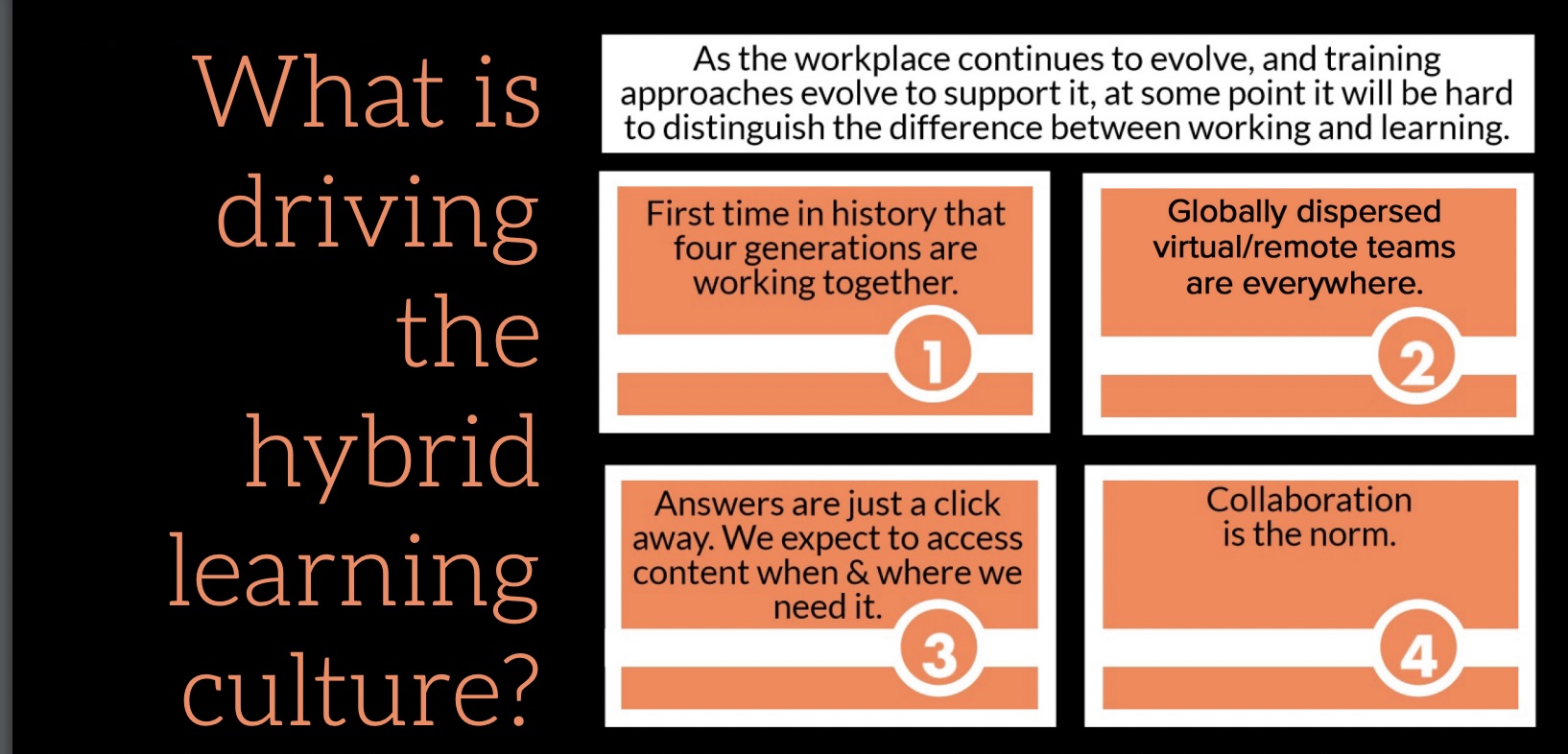[Infographic] Creating the Perfect Blend
So, you've designed great content for your virtual classroom — But, will the blended environment work for that content?
2 min read
 Karin Rex
:
Jun 9, 2021 4:15:00 PM
Karin Rex
:
Jun 9, 2021 4:15:00 PM

 “My Subject Matter Expert (SME) is totally devoted to the new course I’m developing! She accepts every meeting request and stays until every question is answered. When I send an email question, she is incredibly quick to get back to me and answers every question thoroughly and succinctly!”
“My Subject Matter Expert (SME) is totally devoted to the new course I’m developing! She accepts every meeting request and stays until every question is answered. When I send an email question, she is incredibly quick to get back to me and answers every question thoroughly and succinctly!”
SAID NO INSTRUCTIONAL DESIGNER EVER.
(Sorry…but you HAD to know that was coming if you are an ID.)
Persuading an SME can be a delicate dance. How can we influence our SMEs to work WITH us instead of AGAINST us? To answer this question, I traveled back in time to my Psychology 101 course in college where I was introduced to Robert Cialdini’s Six Principles of Persuasion: authority, reciprocity, commitment/consistency, social proof/consensus, likeability, and scarcity.
Let’s explore how these principles can work their magic on your SMEs.
The Principle of Authority is based primarily on perception. We are more likely to comply with requests from others who are authorities or who carry greater knowledge, experience, or expertise. Unfortunately, the “Instructional Designer” title doesn’t carry a lot of weight in most companies. If your SME is someone who you haven’t worked with before, consider having somebody you’ve worked well with previously introduce you -- to “sell” your talents and expertise. If you’re new at the company, be sure to sell your expertise in your introductory email.
The Principle of Reciprocity happens when you do something (or give something) to someone who then feels grateful enough to “pay you back.” For this to work with your SME, figure out something you can do for them so they “owe you one.” For example, SMEs are typically NOT familiar with slide design best practices, but that doesn’t mean they don’t want to learn. I find myself giving mini design lessons frequently. (I’ve even provided SMEs with feedback on their slides before a big presentation.) Most SMEs are grateful to be guided in this way -- and when you teach them something new, they will usually reciprocate in kind by devoting more time to your project.
The Principle of Commitment and Consistency happens because, once we make a choice to do something, we tend to behave consistently with that commitment to justify our decision. Could you possibly CC a prominent leader or team when introducing yourself to this SME in email? Take the opportunity to thank them in advance for their collaboration on what is a particularly important undertaking for the company. (Just like your learners, the need to understand the WIIFM too!) Knowing that having their name associated the success of the project would be a big deal can work wonders with an SME who is climbing the ladder.
The Principle of Social Proof (AKA Consensus) asserts that, when uncertain about something, people tend to make choices that are popular among others. For example, if you saw two food trucks side by side, once with no line and the other with 10 people in line, you would likely get in that longer line because you would assume their food is better. With your reluctant SME, might they know any of the other projects you’ve successfully worked on? Could you show them one? Do they know and respect any of the other SMEs you’ve worked with? Sharing this information with your SME might just make the difference.
The Principle of Likability maintains that the more we like somebody, the more you will be persuaded by them. Try to establish rapport with your SME. Do your research – what commonalities do you share? Do they dote on their dogs? Spend the weekend watching English Football? Brew their own beer? Connecting on something in common will have you looking forward to chatting with each other.
The Principle of Scarcity states that when you think something is in short supply, you want it more. This principle is intended to work on you instead of your SME! Start by acknowledging the scarcity of their time and NOT asking for large chunks of it. Find out how they prefer to communicate. Do they want to meet in person? Talk on the phone? Are they better being able to answer your questions via email?
Practice Cialdini’s 6 principles of persuasion and let it become your SME superpower!
![[Infographic] Creating the Perfect Blend](https://blog.insynctraining.com/hubfs/InSync%20Training%20Creating%20the%20Perfect%20Blend.jpg)
So, you've designed great content for your virtual classroom — But, will the blended environment work for that content?

Today's hybrid workforce is more global, virtual, and mobile than ever before with a modern learning culture that is not only just about technology –...

In my previous post, I discussed the importance of strong design for virtual delivery, and how to achieve it. This post addresses the challenges...